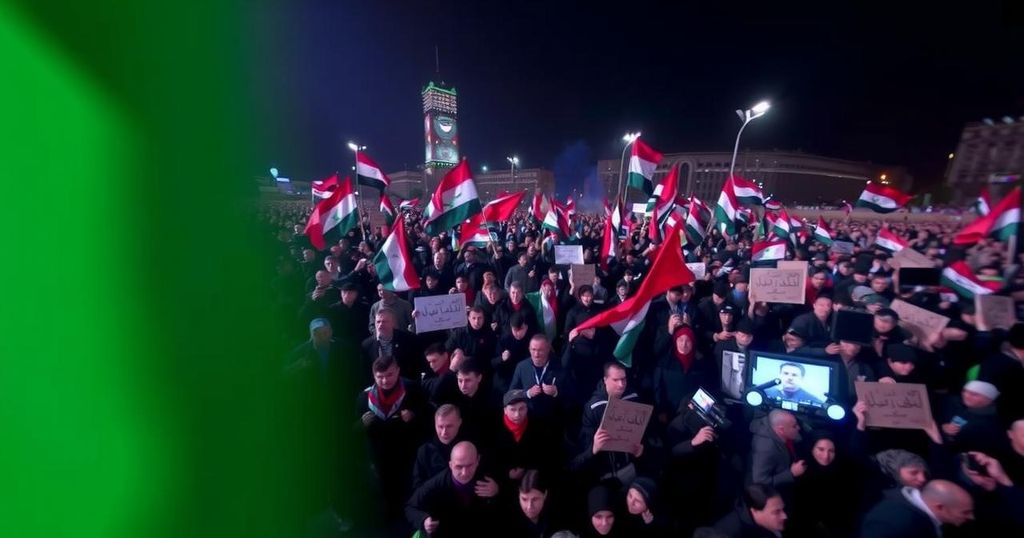Iraq has suspended the license of MBC Media Group following the airing of a report that described leaders of Iranian-backed groups as terrorists. This action came after protests outside the channel’s office, where supporters of these groups vandalized its facilities. MBC’s report mentioned figures such as Yahya Sinwar and Qassim Suleimani, all designated terrorists by the U.S. Saudi Arabia is also considering legal actions in response to the report’s violation of its media policy.
In a significant move, Iraq’s Communication and Media Commission has suspended the license of MBC Media Group, a Saudi-owned television channel, following the airing of a controversial report. The report classified various leaders associated with Iranian-backed militant groups, including Hamas and Hezbollah, as “faces of terrorism.” This action comes in the wake of an incident where supporters of these groups stormed the channel’s Baghdad office, leading to significant vandalism, including damage to equipment and destruction of computers. This unrest escalated after demonstrators gathered outside the MBC building, where they set a fire and voiced chants against Saudi influence, specifically targeting the Al Saud family. Among the leaders identified in the MBC report were Yahya Sinwar, head of Hamas, Qassim Suleimani, an Iranian general previously killed in a U.S. operation, and Hassan Nasrallah, leader of Hezbollah. All these individuals are recognized as terrorists by the United States, and both Hamas and Hezbollah enjoy the support of Iran. In response to the report’s content, which was deemed a violation of Saudi media policy, authorities in Saudi Arabia announced they would pursue legal action to address the issue. Although representatives from MBC have not provided comments on the ongoing situation, the contentious report appears to have been subsequently removed from circulation.
The recent developments in Iraq regarding the MBC Media Group reflect the delicate political landscape shaped by regional tensions, particularly involving Iranian influence in the Middle East. The classification of leaders from Iranian-affiliated groups as terrorists aligns with broader geopolitical narratives driven by the United States and regional alliances. The suspension of the MBC channel highlights the challenges media outlets face when navigating sensitive political subjects in a landscape marked by strong national sentiments and the potential for unrest. The actions taken by Iraqi authorities serve to illustrate the precarious balance between freedom of the press and political sensitivities in volatile environments.
The suspension of the MBC Media Group’s license by Iraqi regulators represents a critical example of the intersection between media reporting and regional political dynamics. The decision follows significant backlash from supporters of influential Iranian-backed groups in Iraq, underscoring the volatility that media institutions may encounter when they address contentious subjects. This incident not only reflects the tensions surrounding Iranian influence but also poses broader implications for media freedom and regulatory responses in politically charged contexts. Furthermore, the swift actions by both Iraqi and Saudi regulatory bodies signal the ongoing scrutiny and accountability faced by channels operating in such sensitive environments.
Original Source: www.nytimes.com







